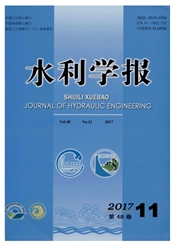

 中文摘要:
中文摘要:
伴随人口增长和气候变化,水资源的稀缺性日益突出,跨界河流的水资源开发与利用越来越成为国家和地区之间既敏感又棘手的难题。跨界河流水资源的激烈争夺符合"囚徒困境"的博弈情势,本文探讨了将互惠策略应用于解决跨界河流囚徒困境问题的思路,论证水资源互惠合作的可行性和必要条件。以非洲尼罗河为例,分析了跨界河流水资源合作存在的挑战和实现互惠合作的途径;以北美哥伦比亚河为例,分析了跨界河流水资源开发利用中实现合作进化的可行性。案例分析表明,跨界河流水资源的合理开发不仅使上下游国家共同受益,而且是促进流域内利益相关方在政治和经济等领域实现合作进化的重要媒介。互惠策略的成功实践对于制定我国与跨界河流利益相关国家水资源领域的合作政策具有借鉴意义。
 英文摘要:
英文摘要:
In the context of population growth and climate change, the scarcity of water resources has be-ing more prominent,making development and utilization of transboundary river an internationally and region-ally sensitive and intractable problem. The competition over transboundary river water resources is a"Prison-er Dilemma"situation. This paper explored the way of applying reciprocity theory on untacking Prisoner Di-lemma in transboundary river cooperation, and discussed its feasibility and prerequisites. The case of NileRiver in Africa was studied to analyze the challenges in transboundary river cooperation,and then the waytowards evolution of cooperation was proposed. The Columbia River in North America was taken to exempli-fy the way towards evolution of cooperation on transboundary river cooperation. The results show that reason-able exploitation of transboundary river could not only increase common benefit of upstream and downstreamstates, but also promote the evolution of international cooperation in political and economic areas. Success-ful practice of reciprocity theory provides reference for cooperation policy making in water resources area be-tween China and neighboring countries.
 同期刊论文项目
同期刊论文项目
 同项目期刊论文
同项目期刊论文
 期刊信息
期刊信息
